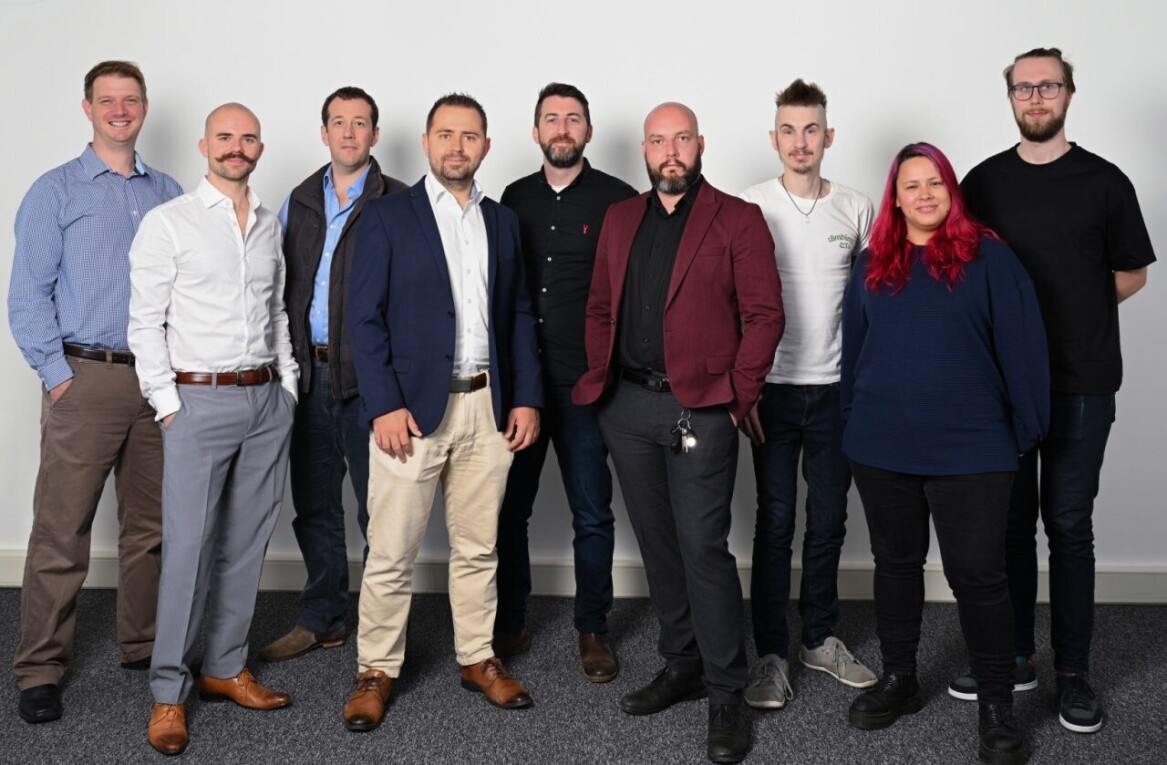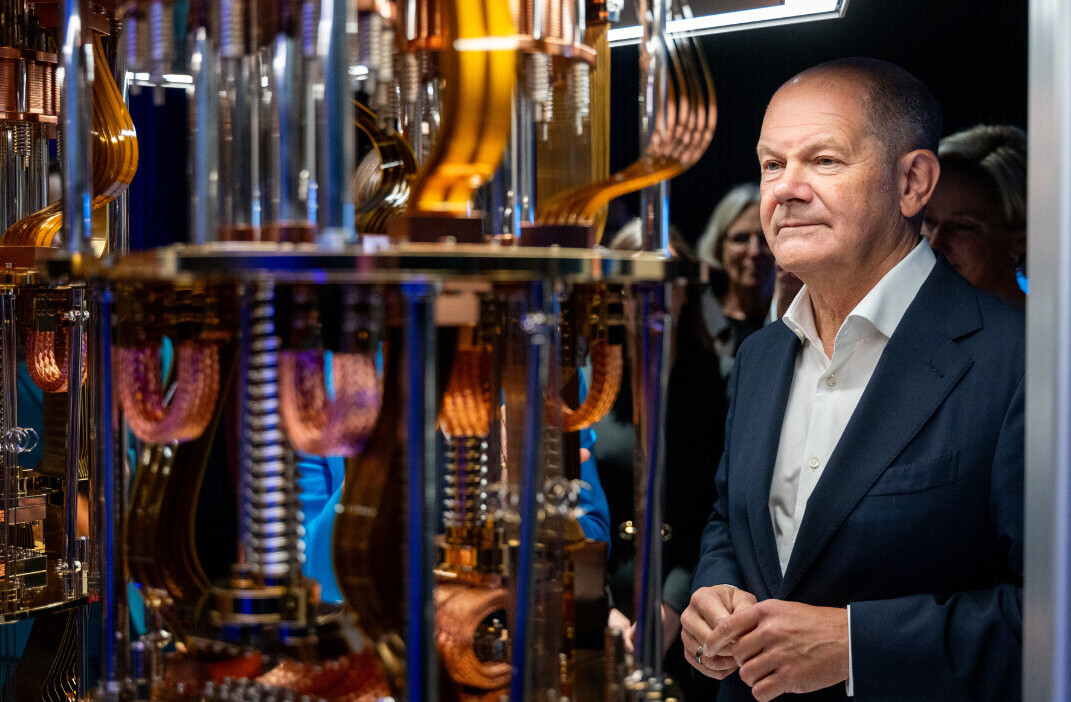
Mention the UK technology startup scene to anyone outside the country and they’ll probably think of London’s vibrant scene around the Old Street roundabout, or maybe clusters in places like Cambridge, or at a push the northeast of England around Newcastle. One area that won’t get a look-in is the northwest.
Spanning from the Irish Sea to the Pennine mountain range, the northwest of England is a region brimming with creative talent. It punches above its weight in the music department – The Beatles, The Smiths, Joy Division and many more classic bands came from the region; its scientific record is outstanding – among them, Alan Turing did much important computer science work in Manchester, the same city that gave birth to The Baby – the first stored-program electronic digital computer. Games-wise, Sony’s base in Liverpool grew from the seeds sown by a vibrant independent developer scene in the northwest
All this world-class talent, and yet it’s difficult to name a single Internet startup from the region.
The problems
One northern venture capitalist, Ajaz Ahmed – founder of iconic dialup-era British ISP Freeserve, which helped bring the Internet to the masses – bemoaned the state of the UK startup scene this week. Speaking at the first ever Northern Tech Awards in Manchester, Ahmed criticised companies lack of attention to detail as a key factor behind no British businesses (aside from the publicly funded BBC) being in the top 100 Internet companies worldwide.
VCs also came under fire in Ahmed’s speech for acting more like bank managers giving out loans than as investors taking a risk. Ahmed later explained to me, “In order to be successful you need to have real empathy with customers, some of the best most successful digital companies and American VCs really understand what customers will like and not like, they don’t ask customers because they are typical customers themselves.”
“Most of our VCs come from a finance background and are more comfortable looking at the figures rather than ‘is this actually a good idea?’,” Ahmed continued.
These are common complaints in the UK, and they probably apply equally to London as they do further north. However, the north of England additionally suffers from not being part of a ‘world city’ environment. Instead of being concentrated in one small area, they are spread out across many cities and small towns.
The potential
 There are many challenges , although things could be starting to change. The Northern Tech Awards, at which Ajaz Ahmed was speaking, was designed to celebrate the achievements of startups making the arduous “uphill journey” from bootstrapped idea to profitability and a lucrative exit.
There are many challenges , although things could be starting to change. The Northern Tech Awards, at which Ajaz Ahmed was speaking, was designed to celebrate the achievements of startups making the arduous “uphill journey” from bootstrapped idea to profitability and a lucrative exit.
The Awards have been founded by Manoj Ranaweera, who has been running networking events for startups in the northwest for five years, presently under the Techcelerate banner. “If you are an early stage tech company operating out of Manchester and the North, it is unlikely you will get to see more than 5 VCs on average, before continuing with bootstrapping and eventually giving up. That’s a bit dramatic, but true for many companies we’ve met since 2006,” he says.
Ranaweera wants to attract more VCs to the north of England. “Instead of tech companies having to travel to London and elsewhere, we will bring the VCs (and angel investors) to them. By doing this, tech companies will improve their pitches and propositions.”
There’s also a real need for a stronger community to support Internet startups in the north. While it’s possible to go to far too many networking events in London, it can be difficult to find many useful, relevant ones north. “The community needs to step in to help fill the gaps, increasing the chances of success for capital raising,” say Ranaweera. “The momentum should encourage more people to take risk by setting up their own tech companies – a ‘if he can do it, so can I’ attitude.”
 Ranaweera has recently opened a shared office space for startups, called Tech Centre Manchester. Inspired by London’s TechHub, which has had a noticeable impact on the startup scene in the capital and beyond, he wants it to use it as the basis for a new ecosystem in the northwest. The plan is to cultivate links with other nearby centres aimed at tech companies, as well as universities in the region.
Ranaweera has recently opened a shared office space for startups, called Tech Centre Manchester. Inspired by London’s TechHub, which has had a noticeable impact on the startup scene in the capital and beyond, he wants it to use it as the basis for a new ecosystem in the northwest. The plan is to cultivate links with other nearby centres aimed at tech companies, as well as universities in the region.
Ranaweera’s problem is that he’s trying to do this on his own, while also trying to run his own startup, Edocr. Tech Centre Manchester is currently unsubsidised too. Charging commercial, central Manchester rates could well make it too expensive for many startups. He hopes to bring large international Internet companies on board as founding partners but at present the initiative is still at an embryonic stage.
At a recent Techcelerate networking event in Manchester, a heated debate began about how to kickstart the region’s startup scene. Many people present argued that an accelerator scheme similar to The Difference Engine and Springboard, both spearheaded by Jon Bradford in other parts of England, would be beneficial for the region. The mood appeared to be “If only we had our own Jon Bradford here.” Until that happens, an ecosystem may have to evolve without the promise of any direct investment. Even if startups can help themselves by pooling resources where possible, it would be a start.
The people
 While paid-for networking events like Techcelerate can help, there’s a definite need for more casual get-togethers of like-minded coders, designers and entrepreneurs. “Startups in the north of England will always struggle due to the lack of critical mass,” explains Jon Bradford. “This can only be addressed by encouraging startups to work and play in close proximity. Creativity comes from working alongside other bright and talented teams.”
While paid-for networking events like Techcelerate can help, there’s a definite need for more casual get-togethers of like-minded coders, designers and entrepreneurs. “Startups in the north of England will always struggle due to the lack of critical mass,” explains Jon Bradford. “This can only be addressed by encouraging startups to work and play in close proximity. Creativity comes from working alongside other bright and talented teams.”
Duncan Stockdill, whose company Capsule CRM won Best Enterprise Startup and Best Bootstrapped Startup at the Northern Tech Awards, agrees. “A strong local tech community would be great so that we can share ideas and experience with other startups and also meet potential future staff,” he says. “Manoj has done a good job with Techcelerate, but that tends to draw the business side of the tech community. There’s also some smaller groups such as geekup with a hardcore tech focus and it would be good to see these growing.”
Stockdill is also keen to point out that, really, location shouldn’t be a significant factor for a Web-based business. “The truth is that successful tech businesses spring up in cities all over the world. There’s absolutely no reason why a tech business in the North of England shouldn’t be successful if they have a good idea and good execution.”
Even without a well-developed ecosystem, it does feel like something might be changing. Maybe it’s the economic downturn sparking people’s entrepreneurial spirit, but I’ve had two potentially top-notch, consumer-facing startup ideas from Manchester companies pitched to me within the past couple of weeks (more on those on The Next Web soon) – something that’s been absent in the two years that I’ve been closely watching the scene in the city.
Manoj Ranaweera plans to make the Northern Tech Awards a larger affair next year, taking in companies from a wider swath of the north. Hopefully by then we’ll have seen more collaboration between startups and a better developed startup culture in places like Manchester.
It won’t be easy though. As Jon Bradford notes, “Startup life is hard, and more so in the North. Whilst there are definite signs of green shoots, but they require nurturing from all of the ecosystem participants rather than this falling upon the shoulders of a few.”
Get the TNW newsletter
Get the most important tech news in your inbox each week.





